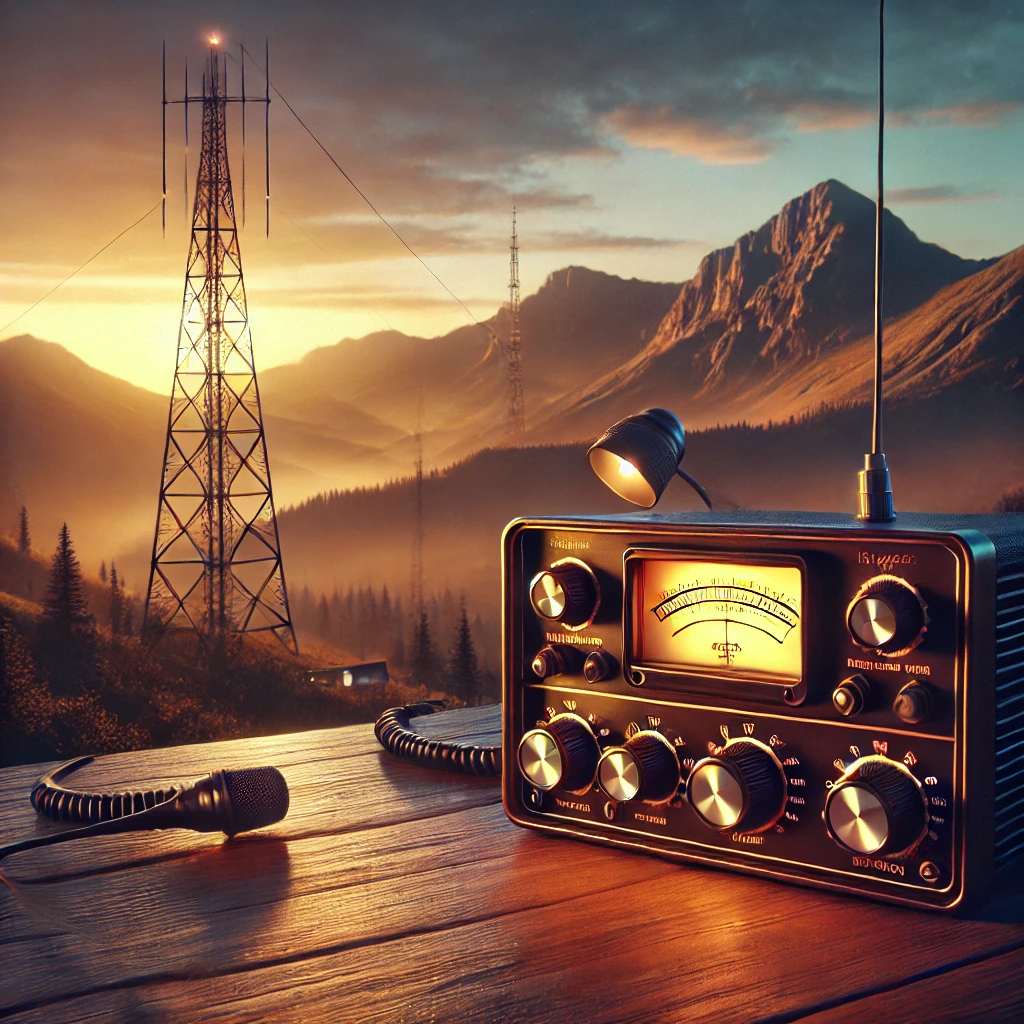As an Amazon Associate I earn from qualifying purchases. This means that if you click on an Amazon link from my blog The Cyber Aviator Chronicles and make a purchase, I may earn a commission. This does not incur any additional cost to you. I only recommend products I believe in and that I think would be helpful to my readers.See my Disclosure Policy for more information.
Embarking on your amateur radio license journey is an exciting step into the world of ham radio. This comprehensive guide will walk you through the essentials of getting started, from understanding licensing requirements to joining the vibrant ham radio community.
Understanding Amateur Radio Licensing Requirements
The first step in your ham radio journey is obtaining a license. In the United States, the Federal Communications Commission (FCC) oversees amateur radio licensing. There are three license classes, each offering different privileges:
- Technician: The entry-level license, granting access to VHF/UHF frequencies and some HF bands.
- General: Allows for more extensive HF access, opening up worldwide communication opportunities.
- Amateur Extra: Offers full frequency privileges, ideal for those deeply invested in the craft.
To obtain your license, you’ll need to pass an exam that covers radio theory, regulations, and operating practices. Don’t worry, though – there are plenty of resources available to help you prepare.
Preparing for Your Amateur Radio License Exam
Studying for your amateur radio exam can be an enjoyable experience. Here are some effective strategies to help you succeed:
- Use online resources: Websites like HamStudy.org offer free study materials and practice tests tailored to each license class.
- Join a study group: Many local radio clubs offer study sessions for aspiring hams, providing a supportive learning environment.
- Invest in comprehensive courses: Platforms like HamRadioPrep.com provide structured, multimedia courses designed to help you pass your exam with confidence.
Remember, the goal isn’t just to pass the test, but to gain a solid understanding of amateur radio principles. This knowledge will serve you well as you begin your on-air adventures.
Essential Equipment for New Amateur Radio Licensees”
NOTE: As an Amazon Associate I earn from qualifying purchases.
Once you’ve earned your license, it’s time to gear up. Here’s what you’ll need to get started:
- Transceiver: A dual-band VHF/UHF handheld radio is a great starting point for Technician licensees. Popular and affordable options include:
- Baofeng UV-5R: A widely used entry-level radio. View on Amazon
- TidRadio H3 or H8: Known for good build quality and features. TidRadio H3 on Amazon
- Antenna: Improve your radio’s performance with an external antenna.
- Power supply: For home stations, a reliable power supply is essential.
As you gain experience, you may find yourself exploring more advanced equipment options. The American Radio Relay League (ARRL) offers excellent resources for both beginners and experienced operators looking to expand their setups.
Joining the Ham Radio Community
One of the most rewarding aspects of amateur radio is the sense of community it fosters. Here’s how you can get involved:
- Local clubs: Join a nearby amateur radio club to meet fellow enthusiasts and participate in group activities.
- On-air events: Participate in contests, special event stations, or casual conversations to hone your skills and make new friends.
- Online forums: Engage with the global ham community through online platforms and social media groups.
By connecting with other hams, you’ll not only learn more about the hobby but also discover the diverse ways people enjoy amateur radio.
The Importance of Amateur Radio in Emergency Communications
As you delve deeper into the world of ham radio, you’ll discover its crucial role in emergency communications. During natural disasters like hurricanes, when traditional communication infrastructure may fail, ham radio operators play a vital role in coordinating rescue efforts and relaying important information. To learn more about this critical aspect of amateur radio, check out our detailed article on Ham Radio and Hurricanes 2024. This real-world application of ham radio skills demonstrates the hobby’s potential to make a significant impact in times of crisis.
Continuing Your Ham Radio Education
The world of amateur radio is vast and ever-evolving, offering a lifetime of learning opportunities. To stay current and expand your skills, consider:
- Attending hamfests: These events offer opportunities to learn about new technologies, purchase equipment, and meet other hams.
- Pursuing advanced licenses: As you grow more comfortable with your Technician privileges, consider upgrading to General or Amateur Extra to expand your operating capabilities.
- Exploring specialized modes: Dive into digital modes, satellite communication, or even amateur radio astronomy to discover new facets of the hobby.
Amateur radio offers a lifetime of learning and exploration. Whether you’re interested in emergency communications, technical experimentation, or simply making friends across the globe, there’s a place for you in the ham radio community. As you progress in your journey, you’ll find that the skills and knowledge you gain can open doors to exciting opportunities and lifelong friendships.


Leave a Reply